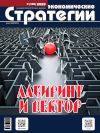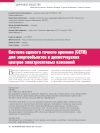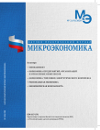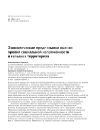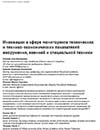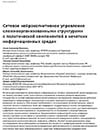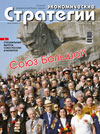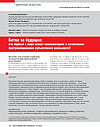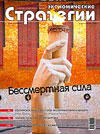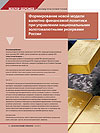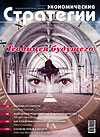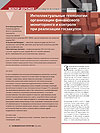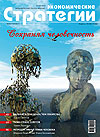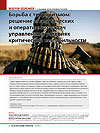Quantum simulators as a tool for observability of a digital supersystem with a significant component of unpredictable behaviour of its elements
DOI: 10.33917/mic-5.118.2024.5-13
The article dwells on the problems of increasing stability of artificial societies consisting of organizational agents as elements of a digital supersystem with a significant component of unpredictable behaviour. The problems of supersystem observability are analyzed. It is proposed to unify information, telematic and computing services for creating a digital twin in order to support the transition of an individual from a cluster of unpredictable behaviour (aggressive behaviour) to a cluster with confirmed trust as a computing solution. Introduction of quantum computing allows us to obtain more substantiated assessments of productivity of the process of increasing the artificial societies’ sustainability based on the use of quantum simulators that allow, in difficult crisis conditions, to calculate all the optimization indicators for a large number of objects and resources in relation to the personalities of recipients (buyers) of information, each of whom is in a local uncertain and confusing choice of solutions for actions in a digital supersystem. The author substantiates direction of the imprinting vector of the reflexive matrices’ developed profiles depending on the different person’s satisfaction with life as a base point, from which one can start for artificially inducing the experience of reality in order to support transition of an individual from a cluster of unpredictable behaviour (aggressive) to a cluster with confirmed trust as a computing solution.
References:
1. Ageev A.I., Grabchak E.P., Loginov E.L. Using artificial intelligence in the implementation of troop command and control of civilian facilities as a single hybrid battlefield. Neurocomputers and their application: Abstracts of the XX All-Russian scientific conference, Moscow, March 22, 2022. Moscow: MGPPU, 2022. pp. 31–33.
2. Ageev A.I., Grabchak E.P., Loginov E.L. Using supercomputer technologies to manage the operation of super-large organizational systems in the implementation of complex special projects (operations). Microeconomics. 2024;1:5–10.
3. Defense Advanced Research Projects Agency • Budget Estimates FY 2024. URL: https://comptroller.defense.gov/Portals/45/Documents/defbudget/fy2024/budget_justification/pdfs/
4. Loginov E.L. Digital Technologies of Political Struggle: Neural Network Imperatives of Information Counteraction to Attempts to Intercept Control in the Socio-Political Environment. Moscow: «Rusains», 2024. 234 p.
5. Ageyev A.I., Loginov E.L. Neurocommunity – is it the Future of Humanity? Economic Strategies. 2022;24(5 (185)):42–51.
6. Grabchak E.P., Loginov E.L. Maintaining the Operation of an Integrated Complex of Civil and Special Structures Based on Digital Synchronization of Monitoring, Communication, Analytics and Control Functions. Problems of Complex Systems Security Management: Proceedings of the XXXI International Conference, Moscow, December 13, 2023. Moscow: V.A. Trapeznikov Institute of Control Sciences, Russian Academy of Sciences, 2023. pp. 499–504.




